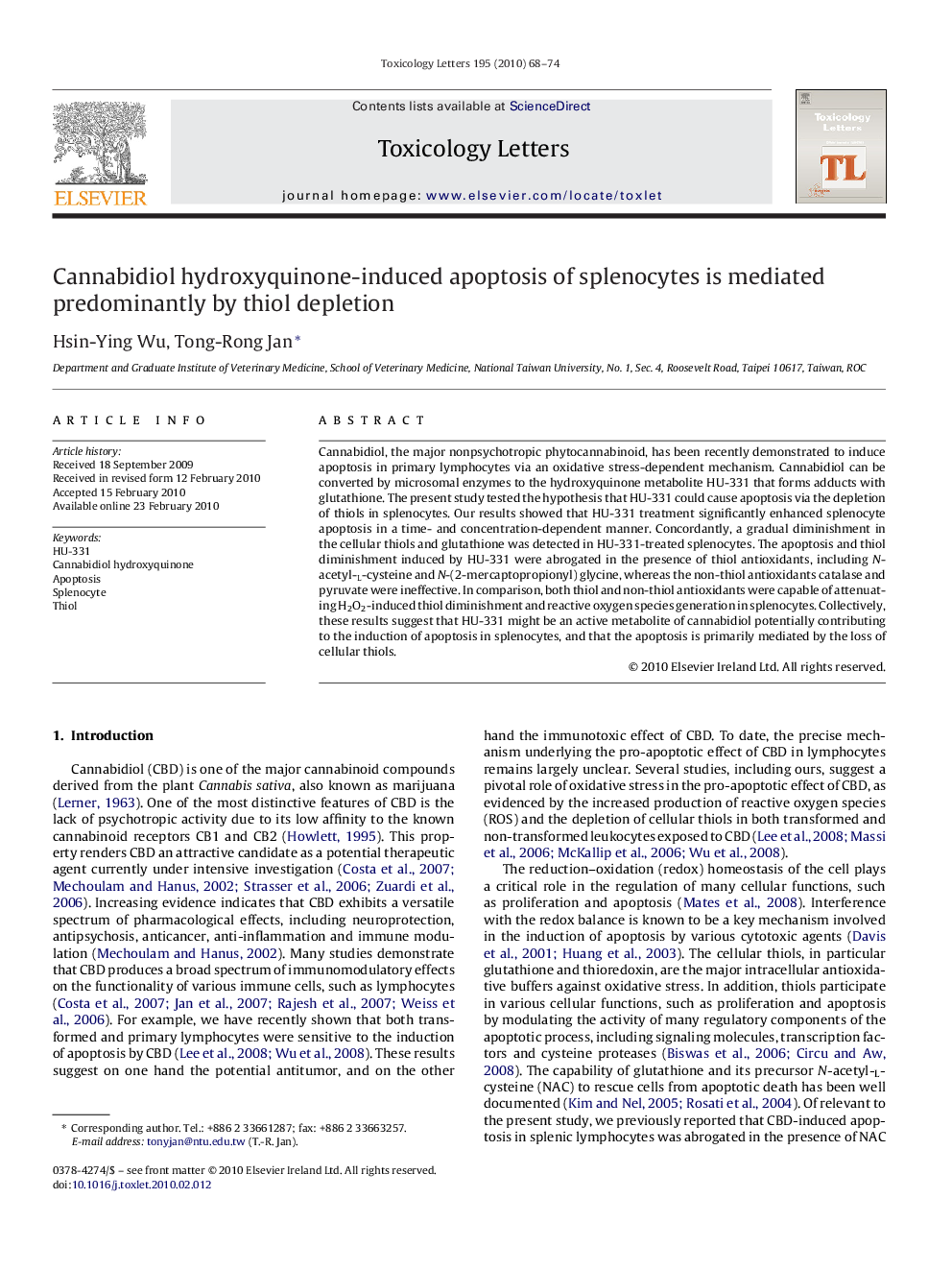| Article ID | Journal | Published Year | Pages | File Type |
|---|---|---|---|---|
| 2600153 | Toxicology Letters | 2010 | 7 Pages |
Cannabidiol, the major nonpsychotropic phytocannabinoid, has been recently demonstrated to induce apoptosis in primary lymphocytes via an oxidative stress-dependent mechanism. Cannabidiol can be converted by microsomal enzymes to the hydroxyquinone metabolite HU-331 that forms adducts with glutathione. The present study tested the hypothesis that HU-331 could cause apoptosis via the depletion of thiols in splenocytes. Our results showed that HU-331 treatment significantly enhanced splenocyte apoptosis in a time- and concentration-dependent manner. Concordantly, a gradual diminishment in the cellular thiols and glutathione was detected in HU-331-treated splenocytes. The apoptosis and thiol diminishment induced by HU-331 were abrogated in the presence of thiol antioxidants, including N-acetyl-L-cysteine and N-(2-mercaptopropionyl) glycine, whereas the non-thiol antioxidants catalase and pyruvate were ineffective. In comparison, both thiol and non-thiol antioxidants were capable of attenuating H2O2-induced thiol diminishment and reactive oxygen species generation in splenocytes. Collectively, these results suggest that HU-331 might be an active metabolite of cannabidiol potentially contributing to the induction of apoptosis in splenocytes, and that the apoptosis is primarily mediated by the loss of cellular thiols.
